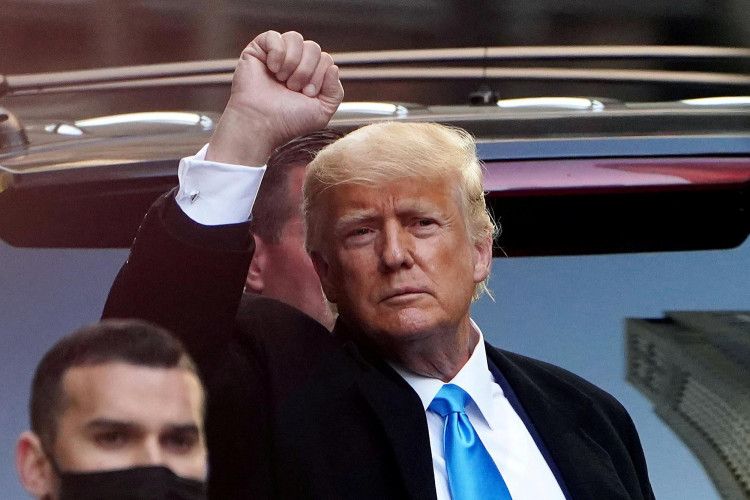The FBI confirmed Friday that former President Donald Trump was struck by a bullet during the assassination attempt on July 13 at a rally in Pennsylvania. This revelation comes after a week of intense scrutiny and public disagreements between Trump and FBI Director Christopher Wray regarding the nature of the injury.
The FBI's statement clarified, "What struck former President Trump in the ear was a bullet, whether whole or fragmented into smaller pieces, fired from the deceased subject's rifle." This update follows Wray's earlier testimony to Congress, where he expressed uncertainty about whether Trump was hit by a bullet or shrapnel, sparking outrage from Trump.
Trump, voicing his frustration on his Truth Social platform, criticized Wray's congressional testimony. "FBI Director Christopher Wray told Congress yesterday that he wasn't sure if I was hit by shrapnel, glass, or a bullet (the FBI never even checked!)," Trump posted. He emphasized that the hospital diagnosed his injury as a "bullet wound to the ear."
The incident occurred at a rally in Butler, Pennsylvania, where a shooter opened fire, resulting in one fatality and injuring two other attendees, in addition to Trump. The FBI's ongoing investigation involves a detailed examination of bullet fragments found at the scene, according to sources familiar with the matter.
During a House Judiciary Committee hearing, Wray had stated, "With respect to former President Trump, there's some question about whether or not it's a bullet or shrapnel that hit his ear." This comment led to significant backlash from Trump and his allies. Texas Rep. Ronny Jackson, who served as Trump's White House physician, vehemently disputed Wray's statement in a letter.
"There was no evidence it was anything other than a bullet," Jackson wrote in his letter, which was shared on social media by Trump adviser Jason Miller. Jackson, who has continued to monitor Trump's health post-incident, insisted that both he and the hospital in Butler confirmed the injury as a gunshot wound.
Jackson's letter also urged Congress to correct the record based on medical assessments. "Congress should correct the record as confirmed by both the hospital and myself. Director Wray is wrong and inappropriate to suggest anything else," Jackson wrote.
In the FBI's latest statement, they reiterated their commitment to a thorough investigation. "The FBI's Shooting Reconstruction Team continues to examine evidence from the scene, including bullet fragments, and the investigation remains ongoing." The agency highlighted the complexities involved in reconstructing the incident and determining the precise nature of the injury.
The assassination attempt and subsequent confusion have not only fueled public discourse but have also become a focal point in Trump's ongoing political narrative. At his campaign rallies, Trump has begun to frame the incident as a testament to his resilience, often saying he "took a bullet for democracy."
Despite the FBI's assurances of a comprehensive investigation, Trump's dissatisfaction with the bureau's handling of the situation is palpable. In his social media posts, he accused Wray of incompetence and vowed to fire him if he wins a second term. "Wray knows nothing," Trump declared, reflecting his deep-seated mistrust in the current FBI leadership.
Jackson, who has a controversial history himself, having faced allegations of misconduct during his tenure in the White House Medical Unit, stands firmly by Trump's account. His previous demotion by the Navy and accusations of inappropriate conduct have not deterred him from taking a strong public stance in Trump's defense.
The hospital where Trump was treated has remained silent, refraining from releasing any official medical reports or statements. This silence adds another layer of complexity to an already contentious issue, leaving the public to rely on statements from Trump, Jackson, and the FBI.






